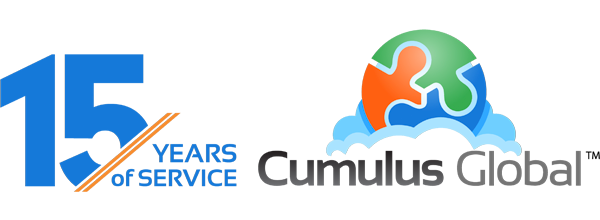Which Cloud? Let Your “Line of Business” Apps Be Your Guide
 Should your CRM, ERP, or Warehousing system guide which email service you use? Yes, and here’s why …
Should your CRM, ERP, or Warehousing system guide which email service you use? Yes, and here’s why …
Many SMBs think of Office 365 and G Suite (formerly Google Apps) as an email service or collaboration tools for emails, files, and chats. Both Office 365 and G Suite are, however, collaboration suites focused on individual and team productivity. Once in place, your productivity cloud becomes the cornerstone of your cloud services and your IT ecosystem.
In deciding which cloud, your line of business systems should guide your decision. Whether you choose Office 365 or G Suite, your productivity cloud will provide the platform that your line of business systems will use to present information and that you will use to view, share, and analyze data.
Born in the cloud, G Suite is built on a cloud-centric philosophy that promotes the use and integration of cloud (ie, SaaS) business apps. G Suite does not include CRM, project/task management, data analysis apps, or other tools. With G Suite the expectation is that you will use the capabilities of Google Cloud Platform, other Google services, or third party apps to meet these needs. The G Suite model centers on your picking “best of breed” or “best fit” cloud-based solutions.
While Office 365 integrates with dozens, of third party, the Office 365 philosophy is to provide an integrated suite of solutions. Delve, Power BI, Planner, Sway, and Teams are all examples of value-add solutions that Microsoft includes in the Office 365 suite to go beyond basic communication and collaboration. With the addition of Dynamics 365, you have many line of business, data analysis, and planning functions covered without looking to third party apps.
Where Do Your Line of Business Apps Fit in the Decision Matrix?
If your Line of Business (LoB) systems run on premise with MS SQL Server Database, will run hybrid on-premise and in-cloud, or will continue to run in a Microsoft ecosystem, Office 365 comes with the ability to connect business intelligence, data analysis, reporting, and communications tools directly to your systems.
If you are running, or moving to SaaS-based systems for LoB solutions, your business intelligence, data analysis, and reporting solutions will likely be cloud solutions as well. G Suite provides and ecosystem for pulling these together in a manner.
Both Office 365 and G Suite integrate with on-premise and hybrid cloud solutions. Both work with many third party solutions. But Office 365 and G Suite each have their own strengths and philosophies. While you should not be limited by your current infrastructure, the nature of your current and planned LoB systems should, therefore, be an important factor when you decide which cloud is right for you.
For a better sense of which cloud is right for you, get a free assessment and consulting session by completing our Productivity Cloud Questionnaire. The survey takes 30-40 minutes to complete. We will respond with an analysis and recommendations report, and a free Cloud Advisor session to review our findings.

